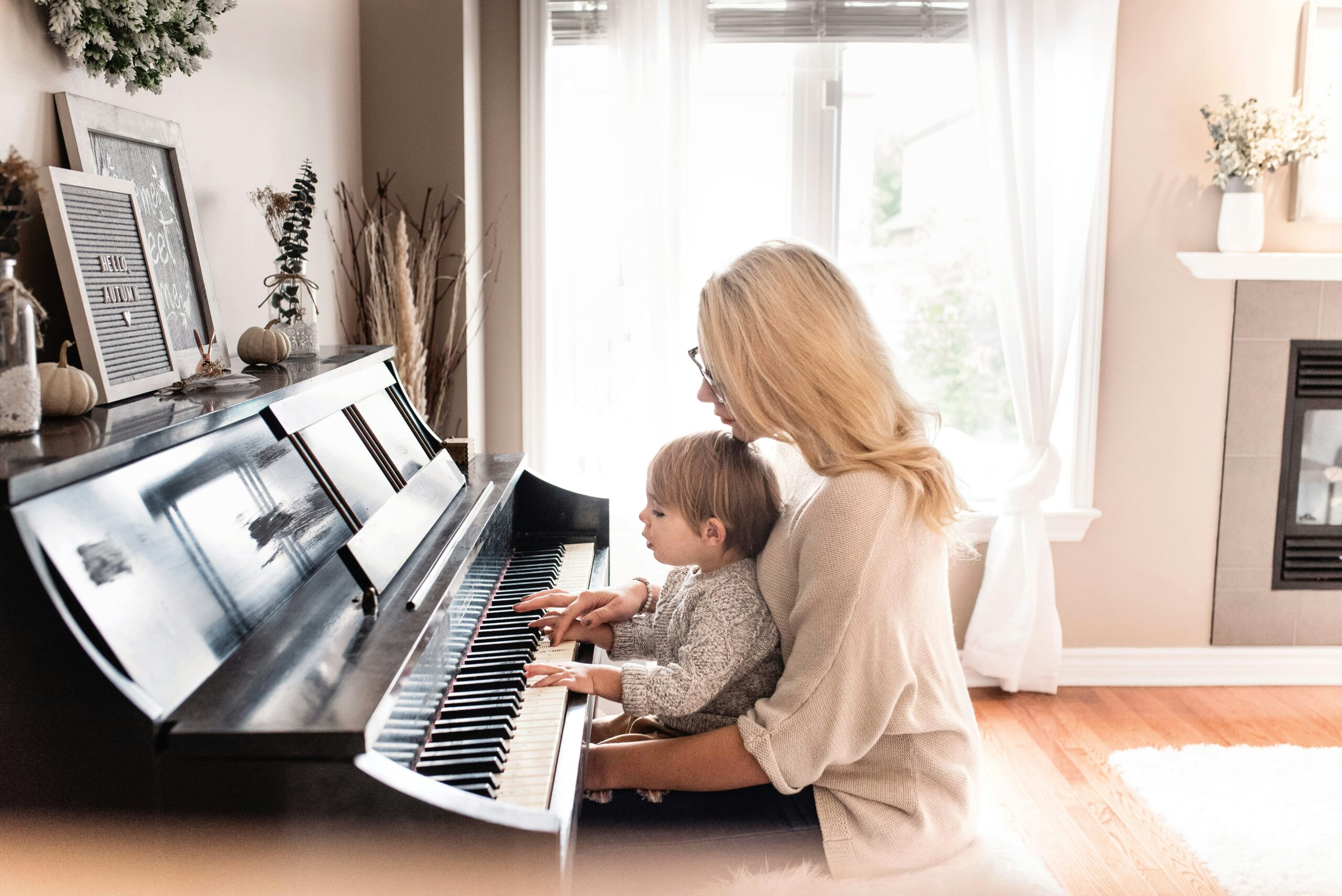Music is a powerful tool for enriching young minds, and it goes far beyond melodies and rhythms. Parents planning their children’s after-school schedules can prioritize music lessons as a way to foster creativity, provide an outlet for emotional expression, and instill life-long skills.
Music education plays a significant role in children’s personal and cognitive development, so incorporating music lessons in after-school schedules is beneficial. Whether it’s learning an instrument, working on voice skills, composing original musical pieces, or learning basic music theory, we are here to highlight the many ways that after-school music lessons help children in ways that extend outside the classroom.
Finding A Musical Path
One of the more challenging aspects of finding the right after-school musical activity is determining what instrument or music program is best suited for your child. Some children may gravitate toward the piano and love to sing along to songs in the car, while others may take an interest in the strings of the cello. Still others prefer to bang out rhythms on the drums.
Discuss with your child what instrument might interest them and note their interests. You may have to experiment with different options, such as taking a trial music lesson, working with several other instruments, or examining a music program before committing to one.
Metropolitan-area families can access specialized instruction in many ways. For example, private cello lessons in New York City offer students the chance to work one-on-one with an experienced professional, which helps them learn the instrument, refine their technique, and develop their personal style.
Opportunities for after-school music lessons that give your child individual attention can improve musical growth. This allows them to progress at their own pace and stay motivated to practice. Finding the right teacher or coach can also involve some trial and error.
Value in After-School Music Lessons
We know that after-school hours can be tricky to manage because children need a balance of academic reinforcement, movement or physical activity, and creative outlets. Music lessons are an excellent option for providing that structure and an expressive atmosphere, allowing children to develop critical thinking and problem-solving skills.
Playing an instrument engages the brain and helps strengthen memory and coordination, and many studies support the benefits of music education. Children who learn to play an instrument tend to perform better in academics and exams because it helps enhance pattern recognition, a skill prevalent in many core subjects.
The discipline required when learning a musical instrument helps children learn to foster skills including patience and perseverance. It takes effort and ample amounts of time to practice and improve musical skills, contributing to qualities that can be utilized across other areas of life.
Engagement and Enjoyment in Music Lessons
After-school music lessons can lead to performance opportunities, which help keep children motivated and engaged in their musical education. Recitals, concerts, or even just playing at family or friend get-togethers can help children build confidence and take pride in their progress.
Over time, practice can become more challenging for children to stay engaged, especially when they feel it becomes too complex. To keep them going, it’s necessary to ensure that your student’s teacher, or even if you’re participating as part of bonding with your child, works together to set small, attainable goals and steps that you can celebrate along the way.
Planning and Commitment
Music lessons in an after-school routine involve planning to balance structured practice with other aspects of play and homework. Suppose your child feels overwhelmed by too many extracurricular activities. In that case, it may lead to burnout, so it’s essential to ensure that you create and maintain a realistic plan that they can commit to following.
There are music programs with more flexible lessons and structure, so you can sometimes vary in-person lessons or online classes. With online learning, you also are not limited to your locale. You can find programs, lessons, or even group classes that can help foster other skills like teamwork and collaboration while keeping music learning fun and engaging.
Music Lessons for Lifelong Benefits
Music education provides children lifelong benefits, such as finding comfort and stress relief in playing music and creativity in other parts of their school or career as adults. Skills developed through music are valuable for personal and professional settings, ranging from social skills to structured discipline.
If you want to incorporate music lessons into your child’s after-school routine, you’re investing in more than just another extracurricular activity. It helps your child foster a passion that can grow and evolve as they do. Although they may not become a professional musician, music is still a universal language that helps to connect and inspire everyone.
Families who add music lessons for their children after school will enjoy providing more by nurturing creativity, self-expression, and personal development. With the right approach and finding something your child excels at, music can be a source of joy and enrich your child’s life for years to come!

